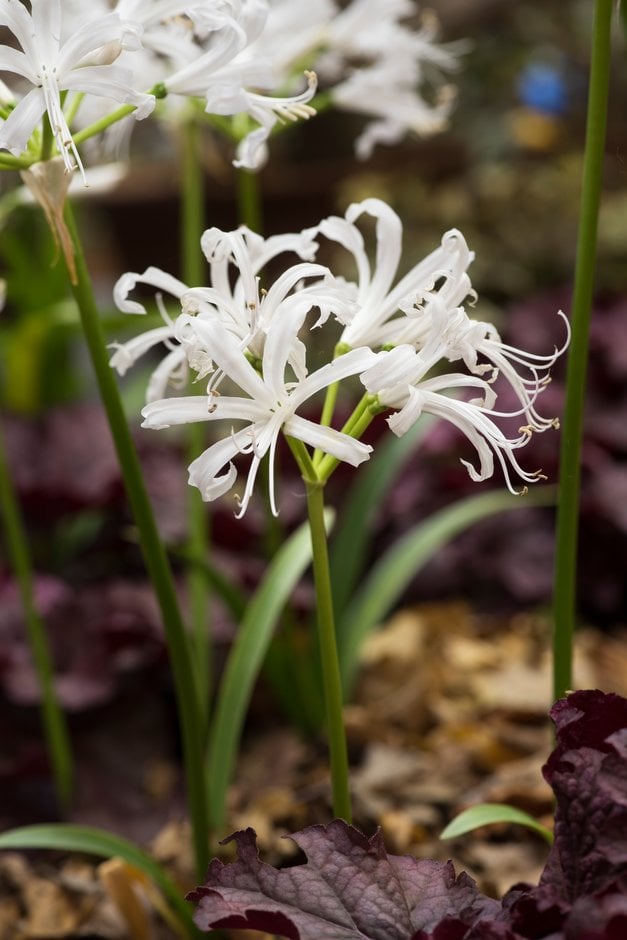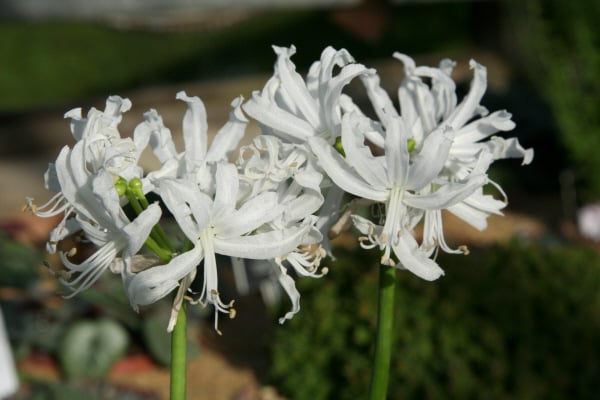Nerine undulata (Flexuosa Group) 'Alba'
nerine 'Alba'
A perennial bulb producing white, lily-like flowers in small clusters at the end of stout stems in late autumn. The petals have wavy edges and are curved outwards. Narrow, strap-shaped leaves follow the flowers
Size
Ultimate height
0.1–0.5 metresTime to ultimate height
5–10 yearsUltimate spread
0.1–0.5 metresGrowing conditions
Moisture
Moist but well–drained, Well–drainedpH
Acid, Alkaline, NeutralColour & scent
| Stem | Flower | Foliage | Fruit | |
| Spring | ||||
|---|---|---|---|---|
| Summer | ||||
| Autumn | White | Green | ||
| Winter |
Position
- Full sun
Aspect
South–facing or West–facing
Exposure
Sheltered Hardiness
H3Botanical details
- Family
- Amaryllidaceae
- Native to GB / Ireland
- No
- Foliage
- Deciduous
- Habit
- Clump forming
- Potentially harmful
- Ornamental bulbs - not to be eaten. Wear gloves and other protective equipment when handling. Pets: Ornamental bulbs - not to be eaten - see the HTA guide to potentially harmful plants for further information and useful contact numbers
- Genus
Nerine are summer-dormant, perennial bulbs with erect leafless stems each bearing a terminal umbel of funnel-shaped flowers in autumn, and strap-shaped or linear leaves appearing after the flowers
- Name status
Accepted
How to grow
Cultivation
Plant in early spring in a moderately fertile, well-drained soil. Protect in colder areas with a deep, dry mulch over winter or grow in containers in a frost-free greenhouse. See also nerine cultivation
Propagation
Propagate by division after flowering
Suggested planting locations and garden types
- City and courtyard gardens
- Coastal
- Cottage and informal garden
- Gravel garden
- Patio and container plants
- Mediterranean climate plants
- Cut flowers
- Flower borders and beds
- Wall side borders
Pruning
No pruning required
Pests
May be susceptible to slugs
Diseases
Generally disease-free
Love gardening
Sign up to receive regular gardening tips, inspiration, offers and more
View our Privacy Policy
Get involved
The Royal Horticultural Society is the UK’s leading gardening charity. We aim to enrich everyone’s life through plants, and make the UK a greener and more beautiful place.

